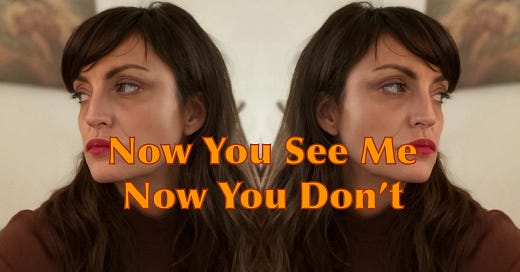For four years now, every day has been more or less the same. Occasionally, I have somewhere to go, and about once a month, someone comes to me. Sometimes it’s a family member; sometimes, it’s a reporter. In this month’s issue of MACLEAN’S, there’s a story about me and our lawsuit against the federal government, written by Luc Rinaldi. It feels strange to say I met him last year—when he first started coming over to interview me—but time marches on, indifferent to who falls behind. My sunlight lamps stretch the days beyond their natural rhythm, and I rarely look up from my screen. I don’t speak to anyone. I don’t have meals or workdays. There’s no wondering if it’s too late to call or when a message will come. That’s why my mother got me a dog—to remind me of joy, of love, of air, and time. When my doctors need to reschedule, I tell them I’ll pencil them in between putting my feet up, and weeping on my knees while shaking my fist at the sky.
Either way, I don’t measure time the way you do, or anyone you know. Every day is the same, and clocks and calendars have nothing to do with me. The days with Luc were fun, despite the darkness of our subject matter.
Mine is a strange battle to fight. It is—undeniably—a tragedy. When we win in court, and we will, it will be a triumph etched in sorrow. Fighting for civil rights has never been easy, or hilarious (no matter how hard I try to make it so). If those of us with severe mental illness could organize and march in protest, many of us would have found a way to work first. At the end of this story, there is no rousing Yay, we can vote! or Yay, segregation is over! Instead, there is Yay, equal rights for those with mental disorders!—but for many, that also means being allowed to die in peace. I am one of them. I have heard from many others. When we win, it will be the greatest, saddest sigh of relief. I can die. I can be free. Yay, indeed.
I know I’ve said before that I won’t make it until the courts decide, but I am trying so hard. I have hit a new low—one unlike anything I have known before. I don’t know what to do. I cannot go to the hospital because of the trauma. I don’t know which circle of hell I am in, only that it feels like the one where you are submerged in boiling tar, draped in a cloak of fire. I just want the pain to stop. My body is breaking down. I had shingles again last month, and there is no mystery as to why my immune system is failing. People are not meant to live like this. I cannot keep living like this. One year ago today, I thought that finally, I might be seen as an equal. Now, again, it often feels like I am screaming into a vacuum.
That is why I am so grateful to the journalists and filmmakers who are helping ensure the voices of those directly affected are heard. We can listen to all the experts we want, but in the end, I am the one who must live with this. Not them. Me. John Scully. Those clinging to life by their fingernails. Luc’s article is balanced and fair. It shows you who I am, where I am.
People like me need stories like this—to be heard- to be seen. Wouldn’t you want to be seen, if you were hanging on for dear life?
The team that came here to do the photoshoot for the magazine took some video.
Thank you for reading. Be well.





This is an important thing you're doing Claire. It's brave and honorable. And I'm sorry you're the one who has to do it. I love you. It's Deb Felstead.
I am sorry you have to fight so hard for peace. Your courage and determination helps so many of us suffering from horrific depression and chronic illness.